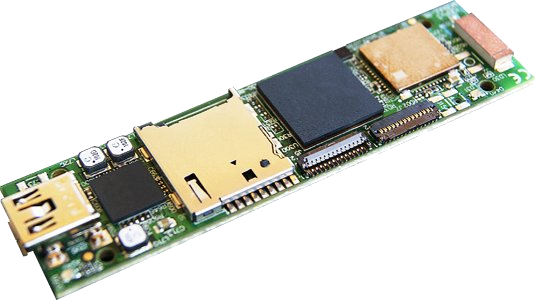Difference between revisions of "Getting started with IGEP COM MODULE"
From IGEP - ISEE Wiki
(→Log into IGEP COM MODULE via USB Ethernet Gadget interface) |
m (→Log into IGEP COM MODULE via USB Ethernet Gadget interface) |
||
| Line 36: | Line 36: | ||
== Log into IGEP COM MODULE via USB Ethernet Gadget interface == | == Log into IGEP COM MODULE via USB Ethernet Gadget interface == | ||
{{Message/Information Message|title=|message=In non-Linux operating system, use [http://labs.isee.biz/index.php/IGEP_SDK_Virtual_Machine IGEP SDK Virtual Machine] to connect to IGEP COM MODULE via USB}} | {{Message/Information Message|title=|message=In non-Linux operating system, use [http://labs.isee.biz/index.php/IGEP_SDK_Virtual_Machine IGEP SDK Virtual Machine] to connect to IGEP COM MODULE via USB}} | ||
| + | ''(from [[Using USB ethernet gadget to communicate]])'' | ||
| + | |||
In your Host Machine: | In your Host Machine: | ||
| − | |||
{{#lst:Using USB ethernet gadget to communicate|USB_linux}} | {{#lst:Using USB ethernet gadget to communicate|USB_linux}} | ||
{{Navigation/IGEP Technology Guides/Getting Started/Ending | {{Navigation/IGEP Technology Guides/Getting Started/Ending | ||
Revision as of 15:34, 29 August 2012
Getting started with IGEP COM MODULE
| |
| |||||||||
Contents
[hide]Overview
This is the 1/3 chapter of IGEP COM MODULE Tutorial Guide.
In this first chapter, we will learn how to connect and log into.
Requirements
In this tutorial we are going to use the following peripherals:
- IGEP COM MODULE
- An USB Cable mini-B
- USB Hub with external power supply
- A PC
Getting started
Power up IGEP COM MODULE
IGEP COM MODULE for standalone operation (without expansion boards) can be supplied using a 5V DC through USB 2.0 OTG connector. Use an USB Hub with external power supply.
Log into IGEP COM MODULE via USB Ethernet Gadget interface

|
In non-Linux operating system, use IGEP SDK Virtual Machine to connect to IGEP COM MODULE via USB |
(from Using USB ethernet gadget to communicate)
In your Host Machine:
- In the file /etc/network/interfaces, you should add:
iface usb0 inet dhcp
- Plug an USB Type-A to USB Type-A mini cable between your host PC and the USB OTG from IGEP device. Use a powered USB Hub if you use IGEP COM MODULE or PROTON Board.
- If you use IGEP SDK VM you need to attach the removable device RNDIS driver.
- Type in a terminal:
sudo ifup usb0
- Revise that:
jdoe@ubuntu ~ $ ifconfig
...
usb0 Link encap:Ethernet HWaddr 66:cc:f2:be:51:b6
inet addr:192.168.7.10 Bcast:192.168.7.255 Mask:255.255.255.0
inet6 addr: fe80::64cc:f2ff:febe:51b6/64 Scope:Link
UP BROADCAST RUNNING MULTICAST MTU:1500 Metric:1
RX packets:14 errors:0 dropped:0 overruns:0 frame:0
TX packets:44 errors:0 dropped:0 overruns:0 carrier:0
collisions:0 txqueuelen:1000
RX bytes:2496 (2.4 KB) TX bytes:8794 (8.7 KB)
...
- Connect to IGEP device
jdoe@ubuntu ~ $ ssh root@192.168.7.1 The authenticity of host '192.168.7.1 (192.168.7.1)' can't be established. ECDSA key fingerprint is 80:be:2d:b6:fe:b1:09:c3:3b:ac:0f:1d:f2:43:f2:20. Are you sure you want to continue connecting (yes/no)? yes Warning: Permanently added '192.168.7.1' (ECDSA) to the list of known hosts. root@igep00x0:~# uname -a Linux igep00x0 2.6.37 #1 Thu Jul 19 09:07:47 CEST 2012 armv7l GNU/Linux root@igep00x0:~#
You have successfully completed this chapter of the guide.
| |

|
If you have any question, don't ask to ask at the IGEP Community Forum or the IGEP Community Chat | 
|
| |
| |||||||||




